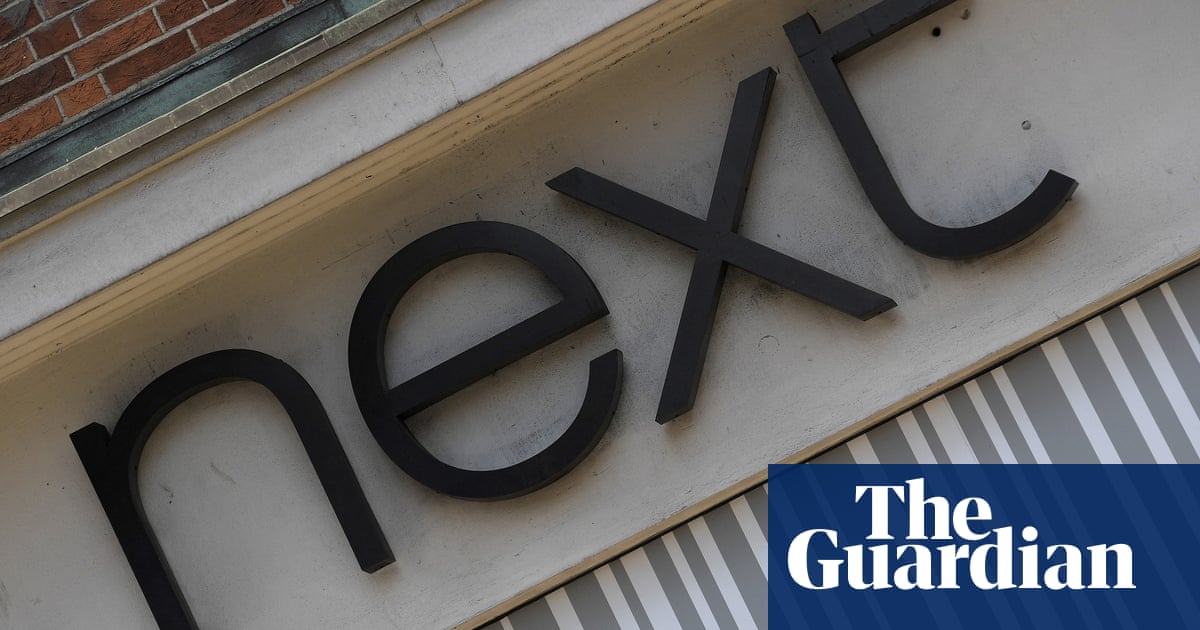Next reaps rewards as global fashion trends ‘converge’ via social media

Next has said international tastes in fashion are “converging” as tech platforms expose consumers to international trends, boosting the retailer’s overseas sales and helping it close in on £1bn in annual profits for the first time.
The fashion and homeware retailer forecast its annual profits at £15m more than previously expected, at £995m – up from the £918m recorded in 2023 – after overseas sales rose by 23% in the six months to July, offsetting a near 1% decline in sales of Next-branded clothing in the UK.
The company said that the “global reach” of tech platforms including Netflix, YouTube and TikTok were “exposing people to international fashion trends in a way they never have been before”, and improving international delivery networks were also encouraging “consumers to try clothes from other countries, and retailers to adapt their ranges that cater for overseas tastes”.
“It appears that international tastes in clothing are converging more rapidly. This convergence is not uniform and is more pronounced in some territories than others,” the retailer said, adding that there remains a “marked difference between different cultures and climates”.
Simon Wolfson, the chief executive of Next, said the business was “at the start of a new phase” with more than half of its sales and profits now online and rapid growth in sales of non-Next brands, some of which the group now owns.
Non-Next brands now account for 17% of overseas sales and the group said it had been experimenting with expanding wholly owned labels including Cath Kidston, after it bought the brand name out of administration last year, and Love & Roses.
The group has signed a partnership deal in India with the local operator Myntra to develop online and retail stores and will expand a deal with the US department store chain Nordstrum, where it is now selling childrenswear, and also expects to find similar partners in Japan, China and Australia.
Next also plans to improve the way it works with shipment hubs in the Middle East and Europe to help better serve shoppers in those territories.
The plans were announced as Next revealed that full-price sales rose by 4.4% in the six-month period, boosting total group sales by 8% and pre-tax profit by 7.2% to £452m.
Next said that full price sales over the six weeks after that period had “materially exceeded our expectations” and were up by 6.9% as better weather helped boost trade.
after newsletter promotion
Sales in the second half of the year are now expected to rise by 3.7%, up from 2.5%.
If Next were to hit £1bn of profits for the first time, it would join only a handful of UK retailers that have done so, including Tesco – and Marks & Spencer in a previous era. The upgrade to its profit expectations lifted Next’s shares by 5.5% to an all-time high of £109.10 in early trading.
Related
Why investing in women is a vital next step for…
Get Nadine White's Race Report newsletter for a fresh perspective on the week's newsGet our free newsletter from The Independent's Race CorrespondentGet our fre
Business secretary signals major shift on electric car policy to…
In a determined effort to retain Nissan’s manufacturing presence in Britain, Business Secretary Jonathan Reynolds has vowed to implement “substantial c
Joint Statement: Business Secretary and Fujitsu Services Ltd
Business and Trade Secretary Jonathan Reynolds today (Friday 7 March) met chiefs for Fujitsu in Tokyo to begin talks over the cost of redress for victims of th
UK foreign secretary backs multilateral defence funding for Europe
UK foreign secretary David Lammy has said that a new multilateral fund will be needed to secure Europe’s defence as he confirmed that Britain is “open to”













